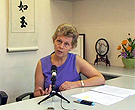Introduction to School-based Assessment
SBA and Assessment for Learning
In Hong Kong, as in many education systems around the world, school-based assessment is aligned with and embedded within the broader educational philosophy of “assessment for learning”. Assessment for learning is any assessment in which the main aim is to enhance students’ learning. An assessment activity can help learning if it provides information that can be used as feedback by teachers and by students in order to improve the teaching and learning process in which they are engaged. It thus differs from assessment of learning, which is designed primarily to serve the purposes of accountability, ranking, or certification of competence.
Please refer to the site below for a document on the assessment for learning policy in Hong Kong, http://cd1.edb.hkedcity.net/cd/basic_guide/BEGuideeng0821/chapter05.html
In Hong Kong the aim is to move the education system from an almost exclusive focus on assessment of learning to one in which all assessments are used creatively and constructively to improve learning and teaching, and school-based assessment is widely utilized as a complement to external exams. Exams themselves are being restructured to better support learning and teaching, to make standards of achievement explicit, and to provide more qualitative information which can provide feedback for learners and teachers.
 |
|
The key characteristics of assessment in an assessment for learning culture have been described as:
- being embedded in a view of teaching and learning of which it is an essential part;
- involving sharing learning goals with students;
- aiming to help pupils to know and to recognise the standards they are aiming for;
- involving students in self-assessment;
- involving both teacher and students reviewing and reflecting on assessment data;
- providing feedback which leads to students recognising the next steps in their learning and how to take them; and
- being underpinned by confidence that every student can improve.
To build a more coherent and stronger assessment for learning culture, all assessments, including traditional summative assessments, need to be reoriented towards improving learning and teaching. This means school-based assessment should be integrated naturally into the normal teaching-learning cycle, and should include a continuous process of reflection, observation and monitoring, recording and reporting, with feedback and self and peer assessment being integral components of all teacher-student interaction.
 |
|
